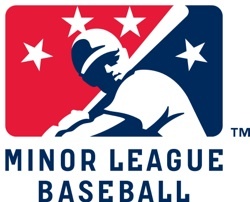 A proposed $1 billion loan program administered through the Federal Reserve would target small event-driven businesses, including MiLB teams unable to make payments like rent and utilities on publicly owned sports facilities.
A proposed $1 billion loan program administered through the Federal Reserve would target small event-driven businesses, including MiLB teams unable to make payments like rent and utilities on publicly owned sports facilities.
The proposal from a bipartisan group of U.S. representatives Lori Trahan (D-Mass.), David McKinley (R-W.V.), Max Rose (D-N.Y.) and Mike Simpson (R-Idaho) would extend additional federal coronavirus relief to small businesses who face exacerbated financial stress because of the public health precautions necessary to slow the spread of COVID-19.
The aim, according to a press release issued by Trahan’s office, is to assist the survival of small businesses that rely on large gatherings and community-based events, preventing them from going out of business. Even as states continue the slow process of reopening, most of these businesses will be unable to fully resume operations for the foreseeable future.
This legislation creates a federal loan program of at least $1 billion through the Federal Reserve to provide loans to community-owned or private small businesses with less than $35 million in revenue and that are contractually obligated to make lease, rental or bond payments on publicly owned sports facilities, museums or community theaters. The funds from the loans would be solely reserved for defined uses such as:
- Facility rent, lease or bond payments or other obligations, including property taxes;
- Utilities for use of the facility;
- Payroll, including health insurance premiums and other employee benefits, for employees whose employment is directly connected to services rendered at the facility and whose income does not exceed $100,000;
- Facility improvements agreed to by the Borrower and, if applicable, the entity or municipality with authority over the facility’s budget and operations;
- And other purposes which improve the infrastructure and/or project development surrounding the facility.
You can view the legislation here.
A prime goal in the legislation is to protect community bonds issued for publicly owned sports facilities, museums or community theaters, which must be repaid regardless of whether events are taking place. The suspension of athletic events for Minor League teams, performances at community venues, and closed attractions like museums due to COVID-19 does not amend these bond agreements, but allows debt repayment.
“People in communities across America have spent months clinging to the hope of returning to a familiar sense of normalcy,” said Trahan via press release. “For many in Lowell, that means catching a Spinners game with family and friends under the lights at LeLacheur Park. However, without additional loan assistance for Minor League teams and similar small businesses, organizations like the Spinners may not survive this economic crisis. I’m proud to introduce this bipartisan legislation to ensure that businesses like the Spinners, who are pillars of their communities, have a fighting chance to once again serve their fans and patrons when it is safe to do so.”
“Minor League Baseball is a point of pride to hundreds of small cities and towns across the country,” said McKinley via press release. “Like many other small businesses in other industries, minor league clubs are struggling. Many of these teams are at risk of closing their doors if they don’t have additional loan assistance to make it through this crisis. This bipartisan legislation will ensure minor league baseball as we know it can survive and keep America’s pastime alive.”
“These teams are a part of our communities in every single way: they create jobs, memories, and have limitless potential. It is critical we step up with programs like this so that they continue enriching our hometowns and country,” Rose said via press release.
“During the ever changing environment we live in today, the sense of community has become increasingly important,” Simpson said via press release. “Our Chukars are a staple of the Idaho Falls community and with this legislation we can offer them a lifeline in the shape of loans. The Idaho Falls Chukars, like many organizations, have significant local public resources invested in their facilities. To give up on these local gems would be devastating to small town America, and make our national pastime exclusive to big cities like New York and Los Angeles.”
Many of these legislators, by the way, were part of the coalition that sought to protect Minor League Baseball in their states from being eliminated via MLB contraction.
RELATED STORIES: Northwoods League to launch regional play, conforming with local guidelines; Northwoods League teams eye June 15 launch; California, New York govs clear way for sports in empty ballparks in June; Another alternative ballpark use during a pandemic: Fore!; Teams find alternative uses for ballparks as entertainment venues; Perfect Game Collegiate Baseball League cancels 2020 season; Katz: Don’t assume Goldeyes baseball this summer; NYCBL cancels 2020 season; MINK League and Florida League update plans; Canceled: 2020 New England Collegiate Baseball League season; Expedition League postpones late-May season opening; MiLB teams warn of dire consequences due to state restrictions; Canceled: Little League World Series, regional championships; WCBL postpones 2020 season opener; Canceled: Midnight Sun Baseball Game; FCBL, TCL, NYCBL delay season start; Cape Cod League cancels 2020 season; American Association delays, scales back 2020 season; Fans prioritize safety when considering return to baseball: study; When baseball returns, will fans return as well?
